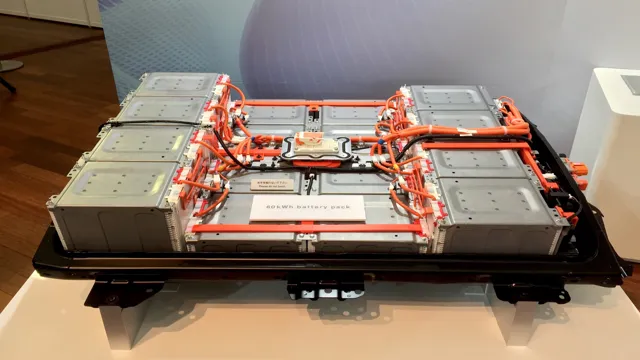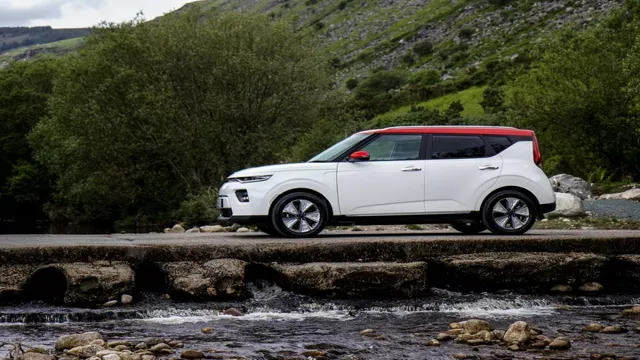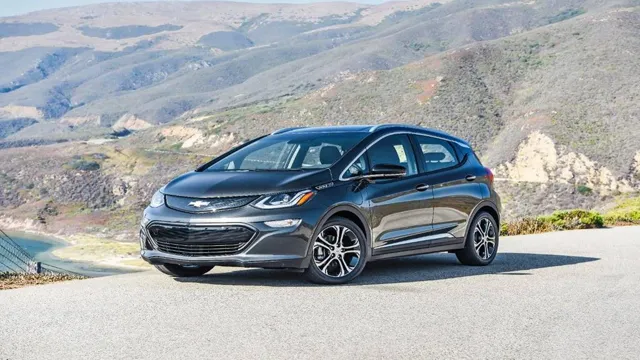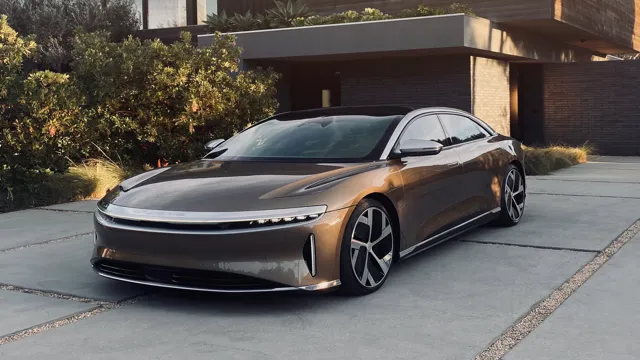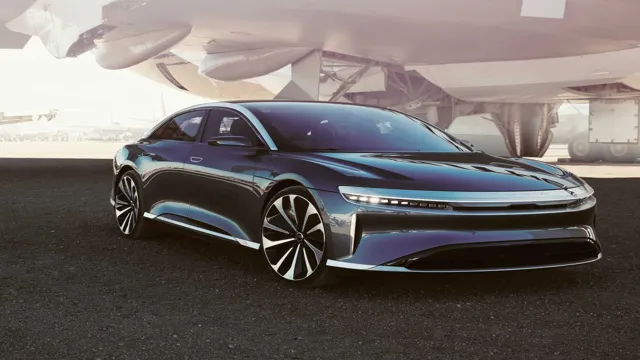Spark Up Your Drive: Top Headlines and Innovations in Electric Car Battery Technology
If you’re interested in electric cars, you’re probably curious about the latest developments regarding their batteries. After all, the battery is the most crucial component of an electric car. Without it, the car wouldn’t be nearly as environment-friendly or as cost-effective as they are.
Fortunately, the world of electric car batteries is brimming with good news. From longer lifespan to higher capacity, electric car batteries are constantly improving. One exciting development is the rise of solid-state batteries, which are expected to hit the market by the mid-2020s.
Unlike traditional lithium-ion batteries, solid-state batteries use solid electrolytes instead of liquid ones, which makes them less prone to overheating and safer overall. Another piece of good news for electric car enthusiasts is that battery prices are steadily decreasing. Since the first electric cars were introduced, battery costs have been one of the main barriers to mass adoption.
However, by 2030, the International Energy Agency (IEA) predicts that battery prices will have dropped by 50% compared to today’s prices. This would make electric cars much more affordable, opening up transportation options for a lot more people. These developments, along with others, point to a bright future for electric cars.
As the costs of electric car batteries go down, and their capacities rise, we can expect more electric cars on the road, making a lower impact on our environment and saving drivers money on fuel costs.
Advancements in Battery Technology
Electric car manufacturers are constantly on the hunt for more efficient and better-performing batteries. In the latest news, battery technology has been advancing at an unpredictable pace. Lithium-ion batteries, which are currently the most popular type of battery found in electric cars, are being improved with new materials that could increase energy density and allow for faster charging times.
Additionally, solid-state batteries are emerging as a promising replacement for current battery technologies. These batteries have the potential to store more energy in a smaller space, making them ideal for electric vehicles. With advancements in battery technology, electric cars are becoming more reliable, affordable, and efficient, ultimately paving the way for a greener future.
As a result, we are likely to see an increase in electric car adoption as more people become aware of these advancements and innovations.
New Battery Designs and Materials
Advancements in battery technology have opened the door for new battery designs and materials that deliver higher energy densities, faster charging times, and longer lifetimes. One of the latest breakthroughs in battery designs is the use of solid-state electrolytes instead of conventional liquid electrolytes. Solid-state electrolytes can improve battery safety, energy density, and cycle life.
Additionally, lithium-sulfur batteries are emerging as a promising alternative to lithium-ion batteries due to their higher energy density and lower cost. Another exciting development in the battery sector is the use of silicon as an anode material instead of graphite. Silicon anodes can hold ten times more lithium ions, which translates to longer battery runtimes.
These new battery designs and materials are pushing the boundaries of what’s possible, and we can expect even more innovation as research continues in this field.
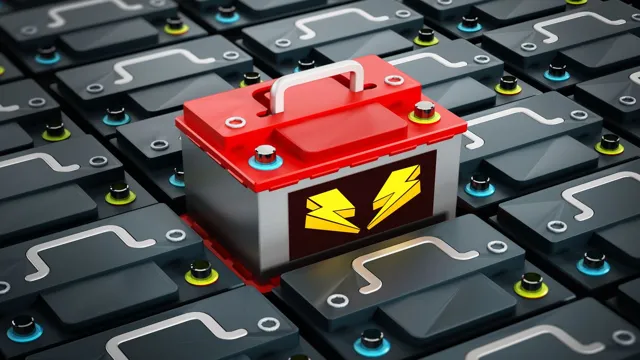
Increased Battery Capacity in Latest Models
Advancements in battery technology have led to increased battery capacity in the latest models of various electronic devices. This gives users peace of mind as they use their devices for longer periods without having to worry about the battery dying. The battery innovation has come in many forms, including sustainable energy solutions like solar batteries.
Manufacturers have also developed efficient battery charging techniques and improved battery management features that ensure the battery lasts longer and is safer to use. The advancements have also enabled the creation of new devices, such as electric cars and drones, which have longer range and flight times. Overall, the increase in battery capacity is a great development for users, as it enhances convenience and reliability in their daily use of tech gadgets.
Charging Infrastructure
When it comes to electric cars, one of the biggest concerns for drivers is range anxiety. However, the latest news in electric car batteries and charging infrastructure may put those worries to rest. With the advancement of battery technology, electric car batteries are becoming smaller and more efficient, allowing for longer ranges and faster charging times.
Furthermore, the installation of more charging stations across the nation makes it easier for drivers to find a place to plug in and recharge their vehicle. As more individuals turn to electric cars, the demand for charging infrastructure increases, and governments and private companies are listening. With continued advancements and improvements, electric cars could soon become the norm for commuters and drivers of all types.
Expansion of Charging Stations Worldwide
The expansion of charging stations worldwide is a clear indication of the significant strides being made in the electric vehicle industry. As more people embrace the adoption of low-emission cars, the need for more charging infrastructure has become increasingly apparent. This has led to the installation of charging stations in different parts of the world, making it easier for EV owners to access charging services anywhere they go.
In the early days of EVs, there were only a handful of charging stations, making long-distance travel a challenge. However, with the current infrastructure developments, EV owners can now drive for hundreds of miles without having to worry about recharging their vehicles. As a result, the EV industry is expected to grow exponentially as more people turn to more environmentally friendly cars.
New Fast Charging Technologies
As electric vehicles become more mainstream, charging infrastructure needs to keep up with the demand. Luckily, new fast charging technologies are emerging that can significantly reduce charging times. One of these technologies is called high-powered charging (HPC), which can provide up to 350 kW of power to an EV battery.
This means that in just a few minutes, an EV can charge enough to drive hundreds of miles. Additionally, there is wireless charging technology being developed that can charge an EV without any cables at all. This technology uses a charging pad that an EV can park on, and the pad uses magnetic resonance to wirelessly transfer power to the vehicle’s battery.
With new advancements like HPC and wireless charging, EV charging infrastructure will become more convenient and accessible for everyone.
Integration with Smart Grids
When we talk about integrating EV charging infrastructure with smart grids, it’s essential to understand that it’s not just about installing charging stations but also optimizing energy consumption. Smart grids can facilitate bi-directional charging, which means EVs can not only draw power from the grid but also give back some of the energy when needed. This process could help manage power grids during peak demand.
For instance, during the day, when the number of solar panels installed on rooftops is generating excess electricity, EVs could charge their batteries and feed some of the energy back into the grid. This could reduce the load on the grid and improve overall grid stability. Furthermore, the deployment of smart charging stations that adjust charging speed during periods of high demand could aid in balancing the energy mix, thereby reducing reliance on non-renewable energy sources.
Ultimately, integrating EV charging infrastructure with smart grids could aid in reducing the carbon footprint while also making the grid more efficient and resilient.
Cost and Affordability
If you’ve been following the latest news on electric car batteries, you may have heard about the decreasing cost and increasing affordability of these vehicles. One reason for this is the improvement in battery technology, which has led to larger production and lower prices. Additionally, many governments have introduced incentives to encourage the use of electric vehicles, such as tax credits and rebates.
These incentives can make the upfront cost of an electric car more affordable and may also offset the cost of charging and maintenance. However, there are still concerns about the affordability of electric cars and the need for more charging infrastructure. Despite this, the trend towards electric vehicles is unlikely to slow down, with more and more companies investing in research and development to improve battery technology and make electric cars more accessible to everyone.
Decreasing Costs for Electric Car Batteries
As electric cars become more popular, the costs of their batteries are decreasing. This is great news for those who have been wanting to make the switch to an electric vehicle but have been deterred by the sticker shock of the battery price. With decreasing battery costs, electric vehicles are becoming more affordable and accessible to the masses.
This cost reduction is due to a variety of factors including improvements in battery technology and manufacturing processes. As car batteries become more efficient, they require fewer raw materials, which helps to drive down costs. Additionally, as electric cars continue to gain popularity, economies of scale are beginning to take effect, further reducing the cost of batteries.
It’s exciting to see these advancements in technology helping to make sustainable transportation more accessible for everyone.
Government Incentives for Electric Vehicles
When it comes to purchasing an electric vehicle, the cost and affordability can be a concern for many people. However, government incentives can make EVs more accessible and affordable. These incentives can include tax credits, rebates, and discounts on electric vehicle charging stations.
For example, the federal government offers a tax credit of up to $7,500 for purchasing an electric vehicle. Some states also offer additional incentives, such as California’s Clean Vehicle Rebate Project, which can provide up to $2,500 for purchasing a qualifying EV. These incentives can significantly reduce the upfront cost of an electric vehicle, making it more affordable for those who may be hesitant to make the switch.
Additionally, the long-term savings on fuel and maintenance costs can make owning an EV even more affordable over time. So, if you’re considering making the switch to an electric vehicle but are worried about the cost, make sure to research the government incentives that may be available to you and take advantage of them to make your transition easier on your wallet.
Future Trends in Battery Technology
The latest news in electric car batteries is all about future trends. With the increasing demand for electric cars and sustainability, battery technology has been evolving at a rapid pace. One of the latest trends is the development of solid-state batteries, which offer greater energy density and stability.
These batteries use new materials that eliminate the need for liquid electrolytes found in traditional lithium-ion batteries. Another trend is the use of lithium-sulfur batteries, which are not only lighter but also have the potential to store more energy than traditional lithium-ion batteries. Additionally, batteries that can charge faster and last longer are also in the works.
These technological advancements are making electric cars more accessible and practical for the average consumer, paving the way for a greener future. As the demand for electric cars continues to grow, there is no doubt that we will see more exciting developments in battery technology in the years to come.
Conclusion
In conclusion, the latest news in electric car batteries is truly electrifying! With advancements in battery technology, we can expect longer driving ranges, faster charging times, and more efficient and sustainable transportation options. It’s clear that the thriving electric car market is not just a trend, but a bold step towards a cleaner and greener future. So, buckle up and charge on, because the road to a fully-electric future is looking brighter by the day!”
FAQs
What is the latest development in electric car batteries?
The latest development in electric car batteries is the use of solid-state batteries that promise longer range, quicker charging and increased safety.
How long does it take to fully charge an electric car battery?
The charging time for an electric car battery depends on the battery capacity and the charging station. With a fast charger, it can take around 30 minutes to charge to 80% and up to an hour to fully charge.
How much does it cost to replace an electric car battery?
The cost to replace an electric car battery varies depending on the make and model of the car. Generally, it can range from $5,000 to $15,000 or more.
Are electric car batteries recyclable?
Yes, electric car batteries are recyclable. The materials like lithium, cobalt, nickel, and aluminum can be extracted and reused in the production of new batteries. This reduces the environmental impact of electric car battery production and disposal.

